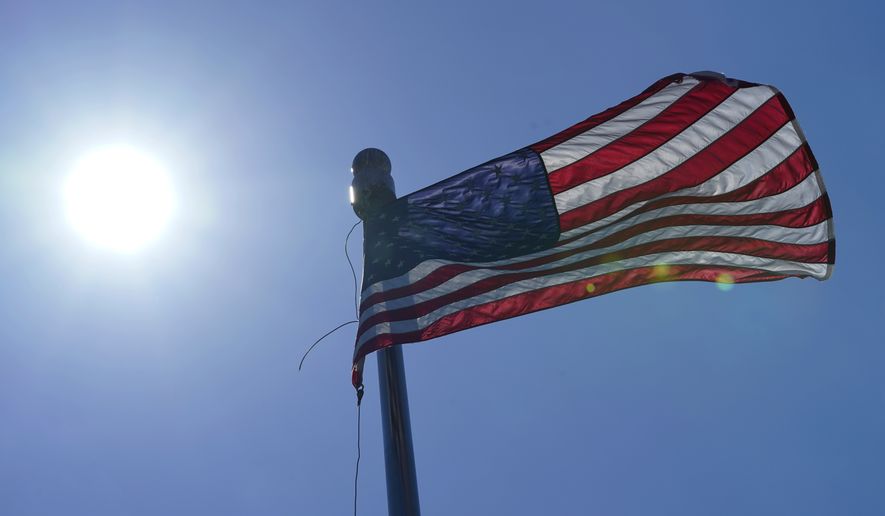OPINION:
Independence Day calls forth the spirit of America like no other occasion, and millions demonstrate their love of country with time-honored traditions like parades, picnics, fireworks and flag-waving. As the nation turns 245, Americans can be grateful that their nation is still worthy of their respect. Despite the jarring journey of the recent past, patriotism still rules the day.
To be sure, 2020’s rise of the coronavirus pandemic and underhanded politics have shattered the peace that Americans revere. Few have been prepared for the heartache triggered by the disease-caused deaths of 600,000 citizens. Fewer still are untouched by the explosion of violence incited across the land by activists weaponizing race as a means of demolishing the rule of law and erecting their illusory utopia.
“The Star-Spangled Banner,” the nation’s ode to the Stars and Stripes, is a handy symbol for both patriots and protesters. Gwen Berry, a little-known Olympic athlete, found a chance to champion rebellion when she turned away from the flag and glowered in anger as the National Anthem was played during recent U.S. Olympic trials. The third-place hammer-thrower’s explanation: Actually, the venerated tune “is disrespectful and does not speak for Black Americans.”
As she basks in the coveted “woke” spotlight, Ms. Berry deludes herself if she believes her act of contempt has won the heart of Black America. The vast majority of U.S. athletes competing for the privilege of representing their nation at the XXXII Olympiad — Black, White and other — do so with the full knowledge of something she forgot or never learned: America’s flawed history has always been the story of citizens who are, like her, exceptional but not perfect. Unlike Ms. Berry, though, most of her teammates have striven to excel by emulating the sacrificial dedication of the nation’s genuine heroes.
One whose patriotism few Americans could hope to match is Army Sgt. William H. Carney, who earned the Medal of Honor by disregarding his own safety to protect the American flag during the Civil War. A soldier in the Union Army, Carney’s regiment charged Fort Wagner, near Charleston, S.C. on July 18, 1863. The regiment’s flag-bearer was shot down during the battle and Carney, seeing the man slump, caught the falling flag. He held the banner high as he took on the deadly task of leading the charge.
Severely wounded himself, Carney never let the colors touch the ground. He refused to surrender the banner until he was carried — still alive — from the battlefield, when his fellow soldiers pried it from his grasp.
Whether he knew the National Anthem by heart, Carney assuredly honored it with his actions, especially its finale: “And the star-spangled banner in triumph shall wave; o’er the land of the free and the home of the brave.” Like Ms. Berry, William Carney was Black.
On Independence Day, Americans — including Gwen Berry — should remember that the flag is always worthy of honor.




Please read our comment policy before commenting.